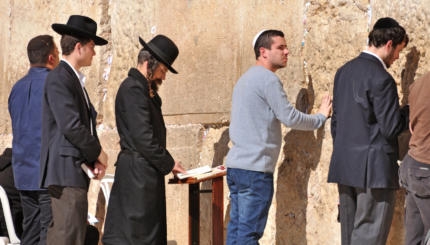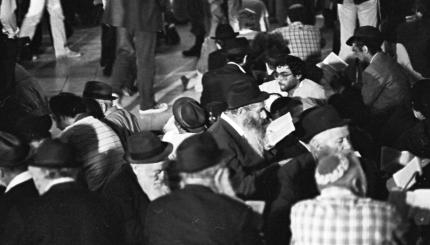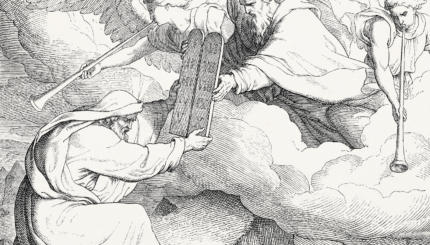Judaism, like most systems of religion, distinguishes between miracles–the extraordinary deeds of the true God or agents of the true God–and magic–the extraordinary deeds of false gods or their agents. The former acts are judged good and acceptable, so that a person who is able to use the power of the divine for purposes the religion deems right and appropriate is thought of as a holy man, miracle worker, or sage. By contrast, a person–usually an outsider or practitioner of a different religion–who demonstrates similar abilities is derided as a witch, demon, or fiend.
Examining the Bible
This distinction between magic and miracle is crucial to our comprehension of the Hebrew Bible’s most complete list of prohibited magical practices (Deut.18:10-11): “There shall not be found among you anyone who burns his son or his daughter as an offering, anyone who practices divination, a soothsayer, or an augur, or a sorcerer, or a charmer, or a medium, or a wizard, or a necromancer.”
This list of prohibited forms of divination and magical practices is echoed throughout the Bible, e.g., at Leviticus 19:26, 19:31, and 20:1-6. Yet despite the directness of its condemnation of these practices, scripture itself frequently speaks in neutral or positive language about a wide range of similar divinatory and magical acts. Interpreting dreams, using magic staffs, reciting blessings and curses, referring to oracles–these are but a few of the”magical” procedures that elsewhere figure prominently as suitable behaviors of the progenitors and heroes of the Israelite nation.
In making sense of these contradictions, we must be clear that the distinction between permitted and prohibited, miracle and magic, has less to do with what deed is attempted with or without success than with the systemic context in which the deed is carried out. At the heart of Israelite thinking is the certainty that what we accomplish involves a miracle and is good while what you do is magic and evil.
Distinguishing Between “We” & “You”
This distinction is prominent and important, for instance, in the story of Moses’ confrontation with the magicians of Pharaoh (Exodus 7:11, 7:22, etc.). Moses and Aaron, on the one side, and the Egyptians, on the other, perform the same actions and thus seem to have similar knowledge and powers (with the exception that Moses and Aaron’s magic appears to be more powerful than the Egyptians’; see Exodus 7:12, where the serpent formed of Aaron’s staff eats the serpents formed from the Egyptian magicians’ staffs). But while they act in manners similar to the Egyptians, Moses and Aaron are not referred to by the negative title magician at all.
The determining factor is neither their capacity to perform wonders nor the specific nature of the trick they perform. Those who do what we would call magic are characterized, rather, on the basis of the source of their knowledge and power: God vs. sorcery. Thus a distinction is made between what we Israelites know and can do with the help of our God, and what you non Israelites know and can do through other, venal forces. In light of this distinction, as we already have seen, the Israelites’ actions are in the category of miracle; those of the outsider are (mere) magic.
Reprinted with permission of The Continuum International Publishing Group from The Encyclopedia of Judaism, edited by Jacob Neusner, Alan Avery-Peck, and William Scott Green.

Help us keep Jewish knowledge accessible to millions of people around the world.
Your donation to My Jewish Learning fuels endless journeys of Jewish discovery. With your help, My Jewish Learning can continue to provide nonstop opportunities for learning, connection and growth.



